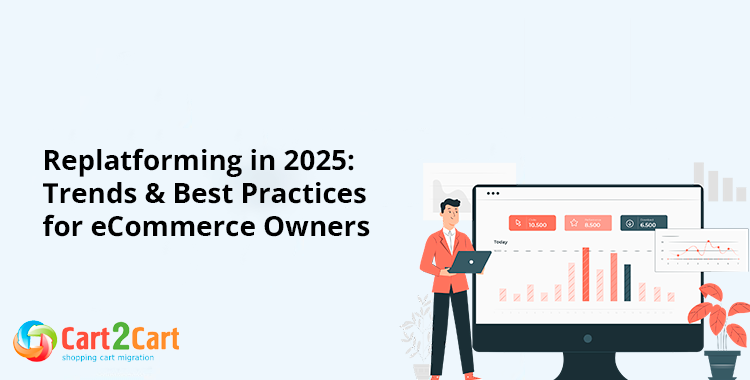 The eCommerce landscape is evolving rapidly, making replatforming a crucial strategy for online store owners looking to stay competitive. Whether it’s due to scalability issues, performance concerns, or the need for better features, replatforming in 2025 requires careful planning and execution. In this article, we’ll explore the latest trends in eCommerce platform migration and best practices for ensuring a smooth transition.
The eCommerce landscape is evolving rapidly, making replatforming a crucial strategy for online store owners looking to stay competitive. Whether it’s due to scalability issues, performance concerns, or the need for better features, replatforming in 2025 requires careful planning and execution. In this article, we’ll explore the latest trends in eCommerce platform migration and best practices for ensuring a smooth transition.
Why Replatforming Matters in 2025
With new technological advancements, changing consumer expectations, and enhanced platform capabilities, replatforming is more relevant than ever. Businesses are making the switch to improve:- Scalability & Performance: Handling higher traffic volumes without slowdowns.
- Omnichannel Capabilities: Seamless integrations with social media, marketplaces, and POS systems.
- Customization & Flexibility: More design and development options.
- Cost Efficiency: Reducing transaction fees and platform maintenance expenses.
- Security & Compliance: Adhering to updated regulations such as GDPR and PCI DSS.
Top Replatforming Trends in 2025
1. Headless Commerce Adoption
Headless commerce is gaining momentum, allowing businesses to decouple the front-end and back-end of their stores for greater customization and performance improvements. Platforms like Shopify Plus, BigCommerce, and Adobe Commerce (Magento) are leading the way in supporting headless solutions.2. AI & Automation in Migration
AI-powered tools are streamlining the migration process, minimizing downtime and ensuring data accuracy. Automated mapping of product catalogs, customer data, and SEO redirects is now more efficient than ever.3. Increased Focus on Mobile Optimization
With mobile commerce accounting for a significant portion of sales, replatforming efforts are prioritizing mobile-friendly themes, PWA (Progressive Web Apps), and accelerated mobile pages (AMP).4. Sustainability & Green Hosting
Eco-conscious businesses are opting for platforms with sustainability initiatives, such as carbon-neutral hosting and energy-efficient infrastructure.5. Seamless Integrations with Third-Party Apps
eCommerce platforms in 2025 offer enhanced API integrations, making it easier to connect with CRM, ERP, and analytics tools for a streamlined workflow.


